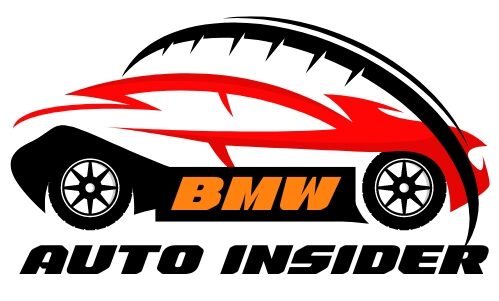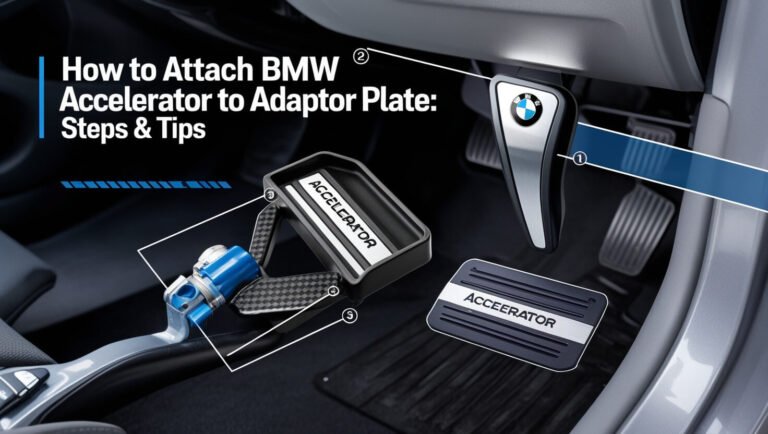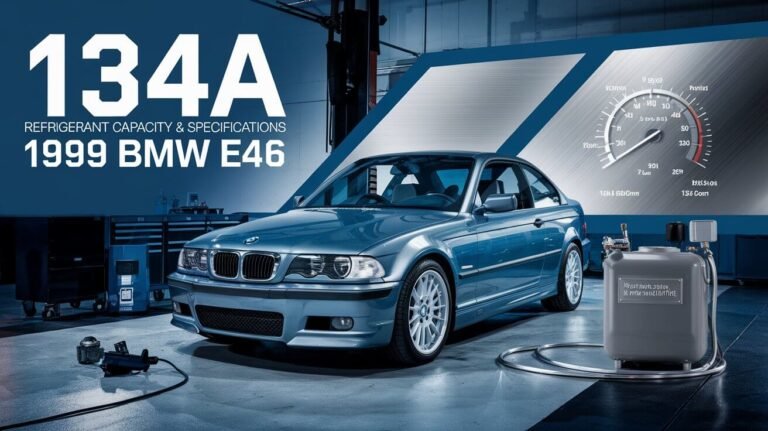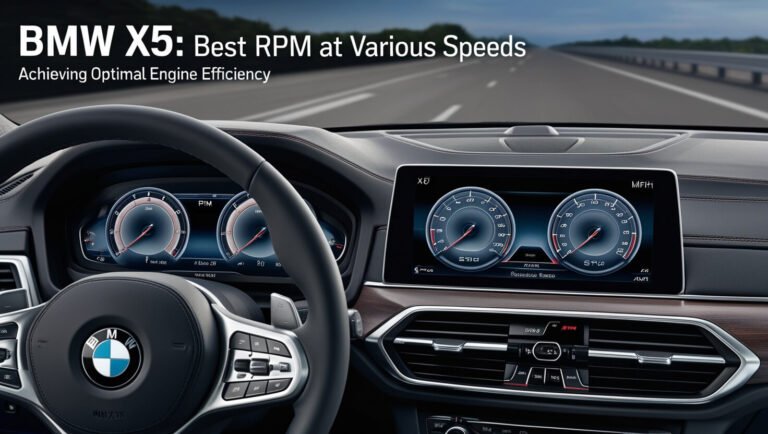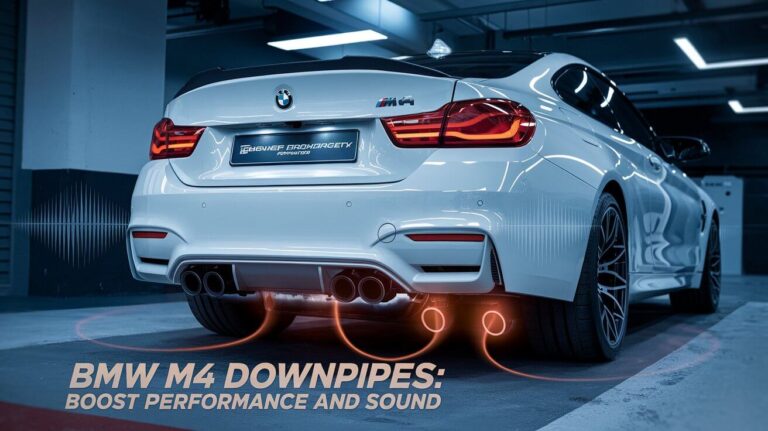
The BMW F80 M3 is a high-performance sports sedan that has captured the hearts of driving enthusiasts worldwide. But how reliable is the F80 M3? This guide digs into the nitty-gritty of F80 M3 reliability, covering everything from common engine issues to long-term ownership costs.
Overview of the F80 BMW M3
Key features and specs
The F80 M3 packs a punch with its 3.0-liter twin-turbocharged inline-six engine, known as the S55. This powerplant churns out 425 horsepower in standard form, with Competition Package models bumping that up to 444 hp. The F80 M3 sprints from 0-60 mph in just 3.9 seconds when equipped with the dual-clutch transmission (DCT).
Production years and updates
BMW produced the F80 M3 from 2014 to 2018. The model received a mild update in 2016, introducing the Competition Package option. In 2018, its final year, BMW released the limited-edition M3 CS, boasting 454 hp and various weight-saving measures.
Common F80 M3 Engine Issues
S55 engine reliability
The S55 engine in the F80 M3 is generally robust and reliable. It’s a significant improvement over the high-strung V8 in the previous E9X M3. However, like any high-performance engine, it’s not without its quirks.
Crank hub concerns
One of the most talked-about F80 M3 reliability issues is the crank hub problem. The engine’s crank hub uses a splined shaft and a single bolt for attachment, rather than a traditional keyway design. In some cases, this can lead to the crank hub spinning independently of the crankshaft, causing severe engine damage.
While this issue isn’t widespread, affecting less than 0.5% of F80 M3s, it’s a concern for many owners. BMW made changes to the design in 2017, reducing the likelihood of failure in later models.
Oil consumption
Some F80 M3 owners report higher-than-expected oil consumption. While not a reliability issue per se, it’s something to keep an eye on. Regular oil level checks are crucial for maintaining engine health.
Transmission Reliability
Manual vs. DCT performance
The F80 M3 offers two transmission options: a six-speed manual and a seven-speed dual-clutch transmission (DCT). Both are generally reliable, but each has its pros and cons.
The manual transmission provides a more engaging driving experience but may require clutch replacement earlier than expected if subjected to hard use. The DCT, on the other hand, offers lightning-fast shifts and improved fuel efficiency but comes with higher maintenance costs.
Known transmission problems
DCT-equipped F80 M3s may experience occasional jerky shifts or hesitation, especially when cold. These issues are often resolved with software updates. Manual transmission cars have fewer reported problems, but clutch wear is a factor to consider, especially in high-performance driving scenarios.
Suspension and Chassis Durability
Adaptive M suspension longevity
The F80 M3’s adaptive M suspension is a marvel of engineering, providing a balance between comfort and performance. However, it’s not immune to wear and tear. The electronic dampers may fail over time, leading to a costly replacement.
Common wear items
Like any performance car, the F80 M3 puts stress on its suspension components. Ball joints, control arm bushings, and wheel bearings may require replacement sooner than in a standard 3-Series. Regular inspections can help catch these issues early.
Electrical System Reliability
Battery life and replacement costs
The F80 M3 uses a sophisticated lithium-ion battery, which offers improved performance but comes at a higher cost. Replacement can run north of $1,000, significantly more than a standard car battery. However, these batteries tend to last longer than traditional lead-acid units.
Infotainment system issues
Some owners report occasional glitches with the iDrive infotainment system. These are usually resolved with software updates. The system is generally reliable, but like any complex electronics, it can have its quirks.
Maintenance Costs and Schedules
Routine maintenance requirements
Keeping an F80 M3 in top shape requires diligent maintenance. BMW recommends oil changes every 10,000 miles, but many enthusiasts opt for more frequent changes, especially if the car sees track use. Other regular maintenance items include:
- Brake fluid flush every 2 years
- Engine air filter replacement every 60,000 miles
- Spark plug replacement every 60,000 miles
Long-term ownership expenses
Owning an F80 M3 isn’t cheap. Beyond routine maintenance, you’ll need to budget for:
- Tires: The high-performance rubber can wear quickly, especially with spirited driving.
- Brakes: Both pads and rotors are larger and more expensive than standard BMWs.
- Potential for costly repairs: While generally reliable, when things do go wrong, they can be expensive to fix.
F80 M3 vs. Previous Generations
Reliability comparison with E9X M3
The F80 M3 is generally considered more reliable than its predecessor, the E9X M3. The S65 V8 in the E9X was known for rod bearing issues and high oil consumption. The S55 in the F80, while not perfect, has fewer inherent problems.
Improvements in the F80 platform
BMW learned from previous generations, implementing several improvements in the F80:
- More robust cooling system
- Improved oil circulation
- More efficient turbocharging system
These changes contribute to better overall reliability and performance.
Real Owner Experiences
Long-term reliability reports
Many F80 M3 owners report positive long-term experiences. Cars with over 100,000 miles are not uncommon, often with minimal issues beyond regular wear items. However, as with any high-performance vehicle, proper maintenance is key.
Common praise and complaints
Owners frequently praise the F80 M3 for its:
- Thrilling performance
- Daily drivability
- Surprisingly good fuel economy for its power
Common complaints include:
- Artificial engine sound through speakers
- Stiff ride, especially with the Competition Package
- Potential for expensive repairs
Buying a Used F80 M3
Key factors to consider
When shopping for a used F80 M3, pay attention to:
- Service history: Regular maintenance is crucial for reliability.
- Mileage: Higher mileage cars may need more immediate attention.
- Modifications: Heavily modified cars may have reliability concerns.
- Production date: Later models may have some issues resolved from the factory.
Importance of service history
A well-documented service history is gold when buying a used F80 M3. It provides insight into how well the car has been maintained and can help predict future reliability.
Modifying the F80 M3: Impact on Reliability
Popular upgrades
Many F80 M3 owners modify their cars for increased performance. Common upgrades include:
- ECU tunes
- Exhaust systems
- Suspension upgrades
- Bigger turbos
Reliability concerns with modifications
While modifications can enhance performance, they can also impact reliability. Increased power output puts more stress on engine components, potentially leading to premature wear or failure. It’s crucial to choose reputable tuners and installers when modifying an F80 M3.
F80 M3 Reliability in Daily Driving
Everyday usability
Despite its high-performance nature, the F80 M3 can serve as a comfortable daily driver. Its four-door configuration and reasonably sized trunk make it practical for everyday use.
Cold weather performance
The F80 M3 handles cold weather reasonably well. However, winter tires are a must in snowy conditions due to the car’s rear-wheel-drive layout and high power output.
Track Use and Reliability
Durability under high-performance conditions
The F80 M3 is designed to handle track use, but frequent track days can accelerate wear on various components. Regular track users should budget for more frequent maintenance and potential upgrades.
Recommended upgrades for track use
For serious track use, consider:
- Upgraded brake pads and fluid
- Additional cooling for oil and differential
- Stronger wheel studs
- Track-oriented alignment
Warranty Coverage and Extended Options
Factory warranty details
New F80 M3s came with a 4-year/50,000-mile basic warranty and a 4-year/50,000-mile powertrain warranty. While most F80s are now out of warranty, some later models may still have coverage.
Aftermarket warranty considerations
For out-of-warranty cars, aftermarket extended warranties are available. These can provide peace of mind but come at a cost. Weigh the potential repair costs against the price of the warranty when deciding.
F80 M3 Reliability: Final Verdict
Strengths and weaknesses
The F80 M3 is a relatively reliable high-performance car, especially when properly maintained. Its strengths include:
- Robust engine design
- Improved reliability over previous generations
- Excellent performance-to-efficiency ratio
Weaknesses to consider:
- Potential for expensive repairs
- Some concerns about long-term durability of performance components
- Higher maintenance costs compared to standard BMWs
Long-term ownership outlook
For enthusiasts willing to invest in proper maintenance and care, the F80 M3 can be a rewarding long-term ownership experience. It offers thrilling performance, everyday usability, and reasonable reliability for its class.
Potential owners need to be aware. This high-performance machine demands attention and care. Plan for maintenance costs and occasional expensive repairs. In return, you’ll enjoy an exciting sports sedan from its time.
The F80 M3’s reliability, while not perfect, is generally good for a car of its caliber. With proper care and maintenance, it can provide years of thrilling driving experiences. Whether you’re considering buying one or already own an F80 M3, understanding its strengths and potential issues is key to maximizing enjoyment and minimizing headaches.
